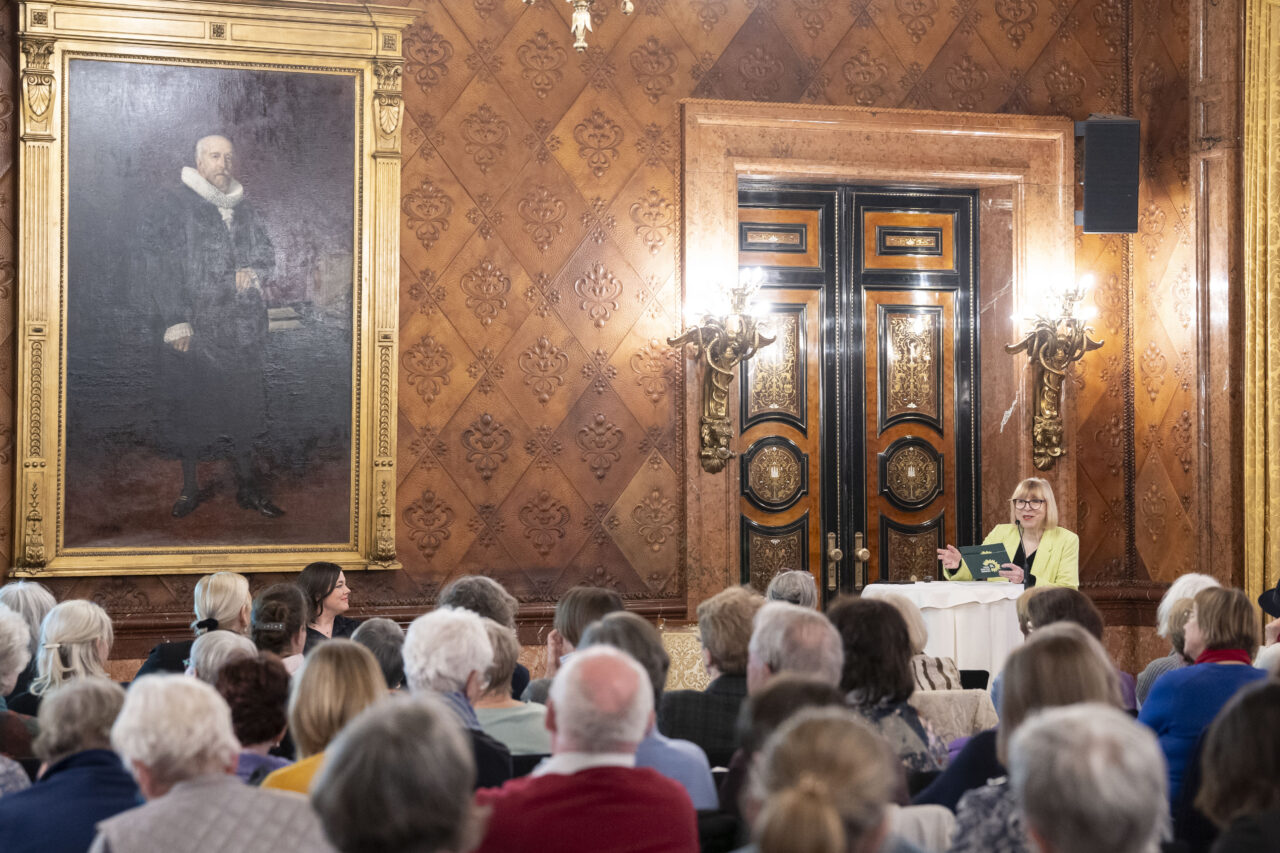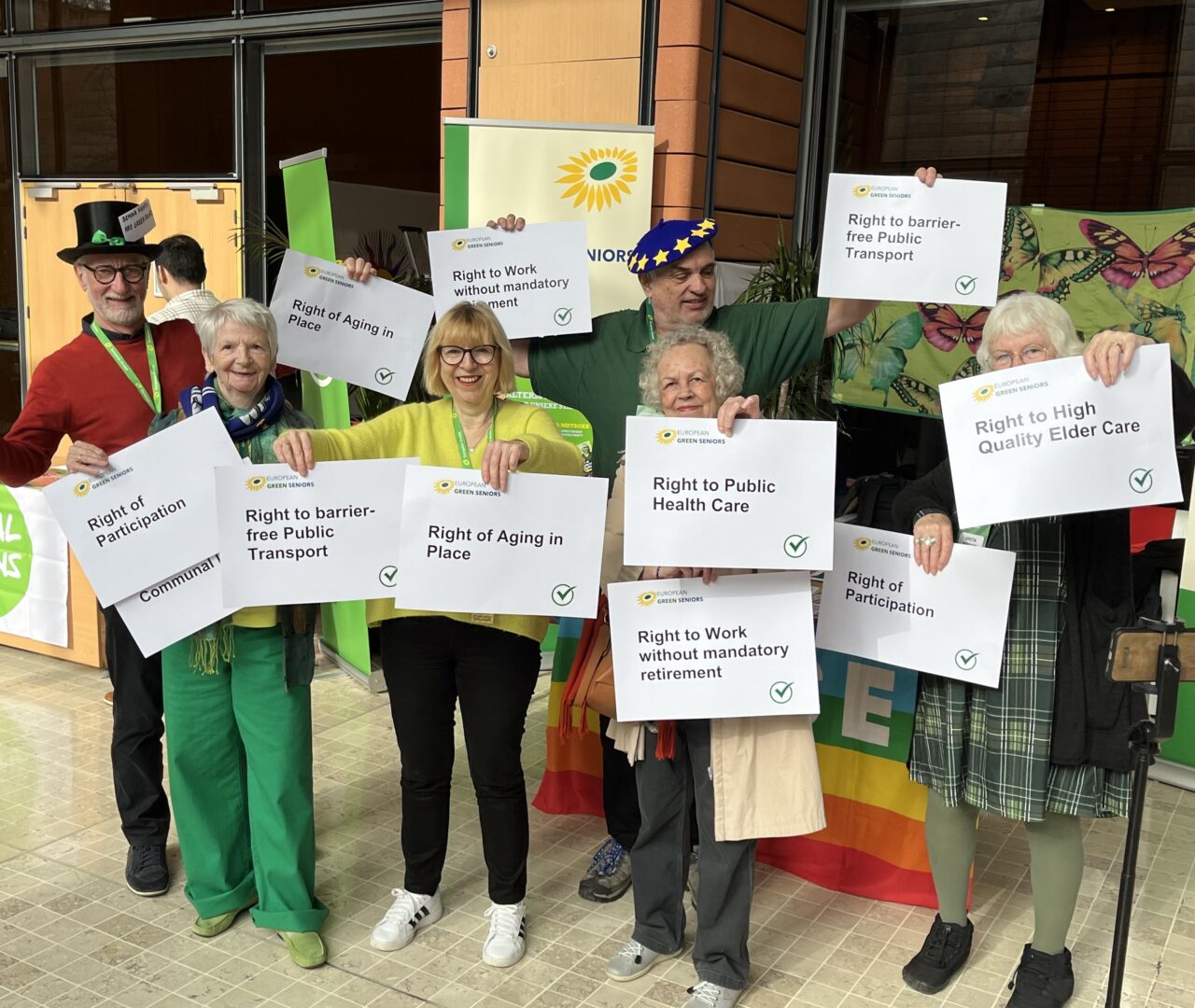Action Conference
For a good life – for everyone worldwide!
The crisis of social reproduction
To care for ourselves and others we need time and resources This is fundamental for the realisation of our needs and interests – for a good life. However, in a capitalist system human needs only play a role insofar as that they are relevant to sustain a flexible, productive and employable workforce. Care work receives little recognition and financial support.
This has become particularly clear since the current crisis of social reproduction, which we understand as the tapered contradiction between profit maximisation and the reproduction of the labour force. This crisis of social reproduction has many facets:
⦁ Public services don’t cover the increasing needs of society for education and healthcare: Funds for kindergartens and schools are cut, old and ill people are not provided for in a sufficient way, people with disabilities receive too little assistance. Only a fraction of public money is invested in kindergartens, schools, youth centres, hospitals and nursing homes, and yet billions of euros of public subsidies are provided for profitable sectors of the economy, like the automobile industry, and banks.
⦁ Despite the prevailing skills shortage, the wages of nursery school teachers, nurses and other social professions are stagnating. Faced with rising housing and living costs they often don’t even pay a living wage. Furthermore, care work is subject to rationalisation pressures, which lead to excessive demands, exhaustion and a lower quality of the work that is being done.
⦁ In other professions as well the work load and intensity of work are increasing. The rising number of stress related illnesses, like depression or break downs, reflect this.
⦁ While resources are cut, the demands on unpaid house- and care work in the families, neighbourhood and charity are growing. For many women this means a double strain – a reality that single parents in particular experience. Many are left without time to look after themselves. People with higher incomes can reduce the stress by paying others to do the housework for them or look after relatives in need. It is often migrants who are exploited doing these jobs in private households without any social security and low wages. These care-chains of migration not only rely on global inequalities, but also sustain them.
⦁ Those people who are not ‘suitable’ for the job market because of child rearing or looking after relatives, becomes unemployed and have to rely on state benefits and its stringent regulations.
Care Revolution as a social movement
Coming from these every-day crises, we want to initiate a change of perspective: Human needs and interests must be at the centre of the discussions of the current crisis. With our call for a Care Revolution it is our aim to revalue and reorganise reproductive work. From a feminist perspective we demand that important tasks like education, care work, healthcare, but also nutrition and housing, become the starting points of our political actions. These are the fundaments of human life. A political economy must be able to satisfy these needs. If this is not the case, as we experience it at the moment, the system must me transformed and renewed.
Mission of the action conference
We mainly want to invite regional and communal groups in the areas of education, care work, healthcare, social work, nutrition and housing for a weekend of exchange, reflection and political action. We see diverse activities that stem from everyday necessities and needs: from the strike of the nursery teachers of 2009 to the regional strikes of nurses, the organisational approaches of household workers and the local struggles surrounding child care. We see diverse political struggles of a wide movement to „Recht auf Stadt“, encompassing powerful protests against forced evictions, migrant struggles for the freedom of movement, self-organised housing projects as part of the Mietshäuser Syndicate and a commons-movement experimenting with alternative ways of living. But smaller initiatives that have united to fight for a better recognition and a reorganisation of care work or patient rights organisations are also very important.
Aims of the action conference:
⦁ Our hope is that the conference will offer a space in which the countless different regional initiatives working actively in diverse areas of care and reproductive work, can exchange experiences and learn from each other.
⦁ In this regard it is particularly important for us to bring together the perspectives of professional care workers, like teachers and nurses, with those who provide unpaid care work in their own homes. From this we hope to build a strong movement from within to fight for the expansion of public services, like kindergartens, schools, hospitals and homes for the elderly, as well as better pay and working conditions for those who work in these sectors.
⦁ Furthermore, it is important for us to bring together activists from different social struggles in the area of social reproduction. In this way parental initiatives can learn something from housing struggles; patient organisations can learn something from self-organised housing projects, teachers from the strikes of nurses, and vice versa.
⦁ Thus, the primary goal of the conference is an exchange of perspectives and experiences n the one hand and the building of a network on the other. At the same time we also want to make all these vital parts of our lives visible. A better visibility of reproductive work, combined with political activities in the field of care, can add to the strength of existing social struggles.
Organisers: AK Reproduktion, Feministisches Institut Hamburg and Rosa‐Luxemburg‐Stiftung
In cooperation with the following initiatives, networks and organisations:
4in1-Initiative Hannover, ABC des guten Lebens, AK Feminismus der Naturfreundejugend Berlin, Arbeitskreis Care der Unabhängigen Frauen Freiburg, Arbeitskreis Kritische Soziale Arbeit Dresden, Arbeitskreis Kritische Soziale Arbeit Erfurt, Arbeitskreis Kritische Soziale Arbeit Hamburg, Arbeitskreis mit_ohne Behinderung, ATTAC AG Gender, ATTAC AG „Genug für alle“, BAG Berufliche Perspektiven für Frauen e.V., Basisgruppe Antifa Bremen – …ums Ganze!, BasisGruppe Emanzipation Aschaffenburg, Berliner Frauennetzwerk, Berlinerinnen und Berliner für mehr Personal im Krankenhaus, Bildungskollektiv Biko, Büro für medizinische Flüchtlingshilfe Berlin, campusantifa frankfurt, Care-Macht-Mehr-Initiative, Das feministische Blatt „Wir Frauen“, Denknetz Schweiz, e*vibes, Fachschaftsrat Sozial- und Gesundheitswesen der Hochschule Ludwigshafen, Frauengruppe Zumutung Reutlingen-Tübingen, Frauenzentrum Paula Panke Berlin, GEW Niedersachsen Referat Frauenpolitik, GEW Niedersachsen Referat Jugendhilfe und Sozialarbeit, GrossmütterRevolution Schweiz, Gruppe d.i.s.s.i.d.e.n.t. in der Interventionistischen Linken (iL) Marburg, Industrial Workers of the World Köln/Pflege Betriebsgruppe, Infoladen Sabotnik Erfurt, Initiative Armut durch Pflege, Internationale Kommunist_innen Berlin, Junge GEW Niedersachsen, Junge GEW Sachsen, Kiralina, Kotti & Co Berlin, KoWa – Kommune Waltershausen, Marche Mondiale des Femmes – Koordination in Deutschland, Medibüro Hamburg, move e.V. – Bildung und Kommunikation in der Sexarbeit, Netzwerk Grundeinkommen, Nicos Farm e.V. Hamburg, QueerFem AG Interventionistische Linke (iL) Tübingen, QueerFeminismus AG der Interventionistischen Linken Berlin, queerfeministische gruppe rapidas Hamburg, Queer-feministische Gruppe ´wider die natur´, Redaktion der Zeitschrift Widersprüche, Redical [M] Göttingen – …ums Ganze!, Respect Berlin, Tagespflege Lossetal, ver.di Arbeitsgruppe Bildung und Erziehung Stuttgart, ver.di Betriebsgruppe Charité Berlin, ver.di Bezirksfrauenrat Hannover-Leine-Weser, ver.di Landesbezirksfrauenrat Niedersachsen-Bremen, ver.di-Pflegenetzwerk der Medizinischen Hochschule Hannover, Verein Demokratischer Ärztinnen und Ärzte, WIDE Switzerland, Wir pflegen – Interessenvertretung begleitender Angehöriger und Freunde in Deutschland e.V., Women in Exile Potsdam



